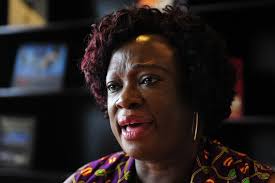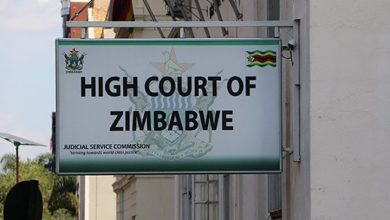Census Bill to pave way for early delimitation of electoral boundaries

Stakeholders have welcomed the Amendment of the Census and Statistics Amendment Bill of 2020 as a ‘reasonable’ move that would enable the government to conduct a national census next year, paving way for delimitation of electoral boundaries before the 2023 elections.
Gazetted on June 12, 2020, the Bill amends the Census and Statistics Act (Chapter 10:29) to align the taking of decennial national censuses in a manner that enables the Zimbabwe Electoral Commission (ZEC) to take into account census data when delimiting electoral boundaries every 10 years as required by section 161(1) of the Constitution.
The Bill comes after ‘successful’ lobbying efforts by citizens, political parties and civic society organisations (CSOs) who raised concerns on the government’s previous proposed move to delink delimitation from the national census.
It was suspected authorities wanted to “hide populations” while creating their own boundaries for the 2023 elections and critics said the decoupling proposed in the Constitution of Zimbabwe Amendment (No. 2) Bill violated the country’s constitution, which presently says constitutional boundaries cannot be redrawn six months before an election.
Also read: http://cite.org.zw/concern-over-proposal-to-delink-delimitation-from-census/
But in a fresh move, the government amended the Census and Statistics Amendment Bill of 2020 that allows for enough time in marking new electoral boundaries between the census in 2021 and the next elections in 2023.
In an interview with CITE, Nkulumane legislator and constitutional lawyer, Kucaca Phulu, said the amendment of the census act would allow the government to carry out the census in 2021 rather than later.
“This is a reasonable development because as you know the census cannot be carried out within six months of an election, so this became a topical issue as we discussed the Constitutional Amendment Bill No. 2,” he said.
“In the amendment to the constitution the government sought to address the problem of the census because they want to hold the census in 10 years but it wouldn’t make sense to hold the census after the election when we have gone through so much changes in the population.”
Phulu said the government had sought to amend the constitution but during the consultations done by the Parliament, citizens objected to that.
“In the end after listening to the submissions, the justice committee recommended not to amend the constitution but rather amend the census act and align it with the constitution. Minister of Justice (Ziyambi Ziyambi) also accepted that argument and as a result passed the census amendment act to allow the government to hold the census in 2021, resultantly dropping that provision that seeks to amend the constitution in that regard,” said the constitutional law expert.
He added that the census act amendment meant ZEC, in redrawing boundaries or doing delimitation is supposed to take into account the population.
“Population is one the factors that are used to arrive at how to divide the country into different constituencies but there are other factors that ZEC takes into account such as registered voters. ZEC will also take into account the geographical location and special interests then divide the country into different constituencies.
He added: “So delimitation is supposed to be done now, ZEC is going to have the benefit of doing delimitation having taken into account that the census is done to the idea of this amendment. Delinking delimitation would have affected democratic representation and raised suspicions about gerrymandering, a practice where electoral boundaries are manipulated in order to suit one political party’s interests over its competitors’ interests.”
On his twitter account, political analyst, Alex Magaisa, described the move as a “fair outcome” but advised citizens to be “very vigilant” adding the census was a deeply political and electoral issue.
“It’s an electoral issue because electoral boundaries are marked on the basis of census data. The size and location of constituencies will be determined by census day. A lot happens especially if census data is manipulated. If opposition parties, CSOs and the public sleep on the wheel, they will wake up to find that the election has been determined by the census in 2021,” he said.
“So don’t talk about 2023; talk about 2021. It’s a numbers game. Watch out for inflation or deflation of numbers in constituencies. The redrawing of electoral boundaries is a deeply political issue. Watch out for gerrymandering and whether the rural or urban ratio is still the same or has changed. To parties and CSOs prepare to monitor the census like you monitor the election.”






